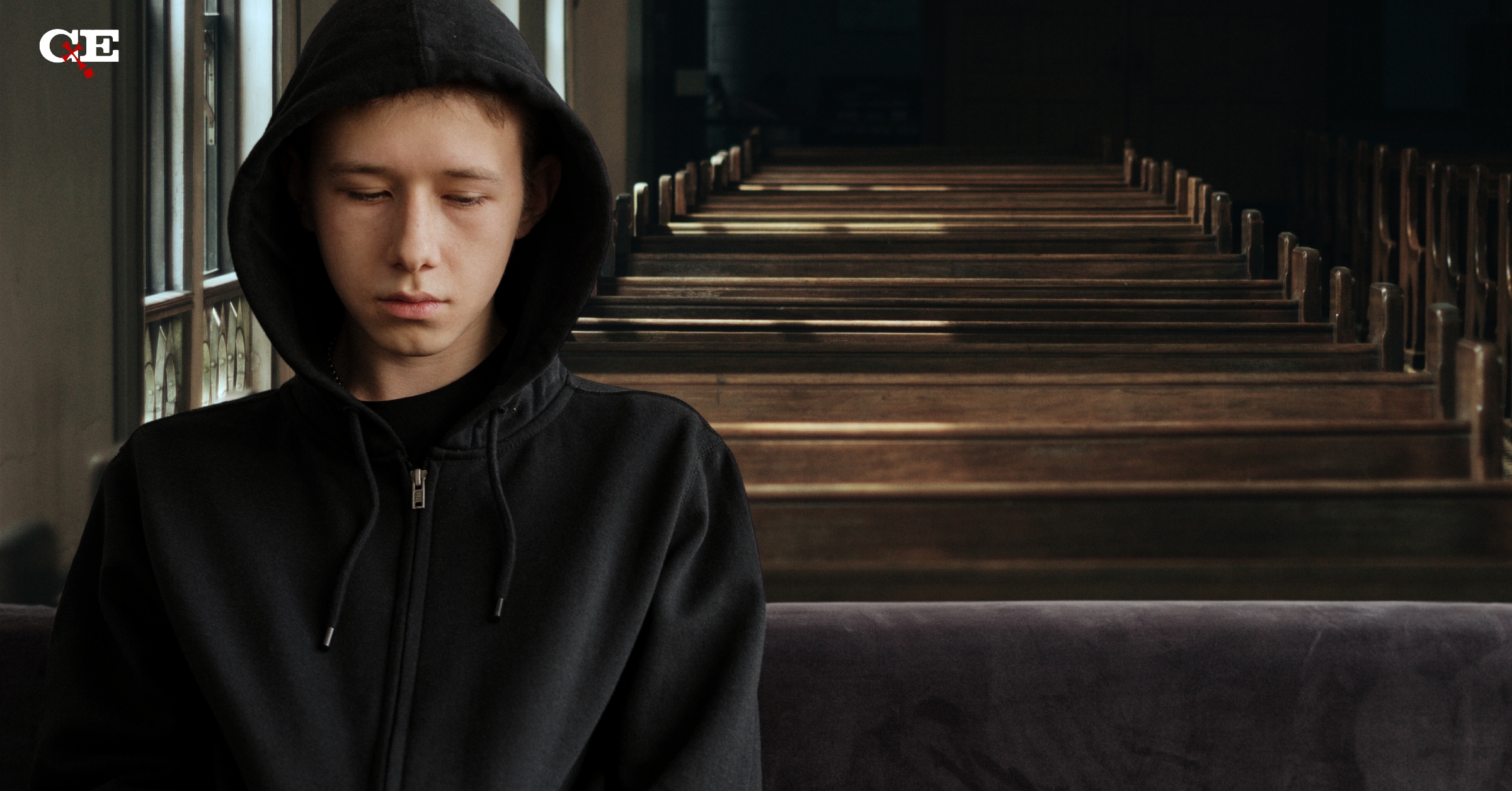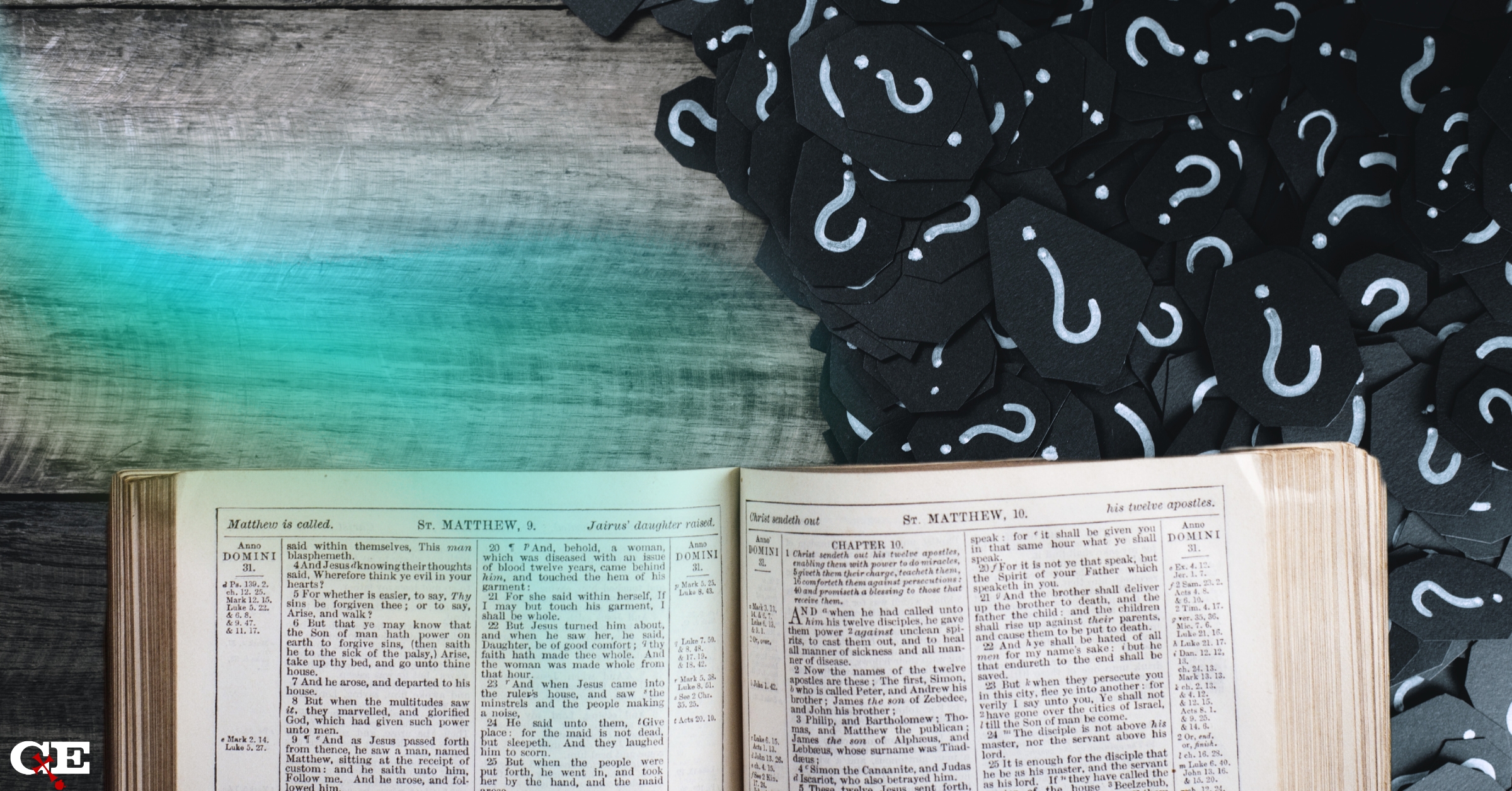In the age of critical thinking, many people doubt their beliefs. Churches teach dogmas and present their faith as certain, as if there is no room for doubt. Secular and scientific sectors are intrinsically linked to doubt. Claude Bernard, the father of modern Physiology, states that the doubter is “the true scientist; he doubts himself and his interpretations, but he believes in science.[1] Can faith and doubt coexist? Are not they two ends of the spectrum? Is doubt good or bad? This article will try to answer these questions.
Types of Doubt: Good or Bad
Christians usually perceive doubt as a bad thing. Many pastors encourage their congregations to just believe, quoting verses such as Matt 17:20, Mark 4:40. Probably the most quoted verse is when Jesus answered “Truly, I say to you, if you have faith and do not doubt, you will not only do what has been done to the fig tree, but even if you say to this mountain, ‘Be taken up and thrown into the sea,’ it will happen. And whatever you ask in prayer, you will receive, if you have faith” (Matt 21:21 ESV). This paper is not written to refute such sermons, but it is written to help those who are struggling with doubt to revise the type of doubt that they are experiencing and find rest in their doubt without losing their faith or practicing blind faith.
Because of the negative image of doubt, many people think that it is part of the fallen nature of man; therefore, believers should get rid of it totally and stop questioning their faith. But the question that is being raised here is: Is doubt always bad? Anne Fagot-Largeault states, “The difference between dogmatic skepticism and scientific doubt is that the skeptic is forever in doubt, while for the scientist, the doubt is temporary, a suspension of judgment that avoids coming too quickly and erroneously to a conclusion. It is a difficult passage that must be traversed.”[2] This distinction allows readers to think that there might be different types of doubt, and some of these are good and healthy, while others are bad or destructive.
In the age of social media and unverified information, skepticism has become more common. While information is readily accessible with just a click, verifying every piece of it is often impractical. In science, doubt is the starting point of any investigation—it drives the search for new knowledge. Without doubt, scientific progress might never have occurred. The same principle applies to everyday life. For example, if a driver approaches an intersection without questioning whether other cars are coming from either side, the risk of an accident increases. Healthy skepticism means withholding judgment until sufficient evidence is available. In medicine, physicians are encouraged to communicate their uncertainties with patients. Even tentative information can help patients make meaningful lifestyle changes. Therefore, doubt should not be viewed as inherently negative; instead, people should learn how to apply it wisely.
Types of Doubt: Factual or Emotional
When it comes to religion, doubt is often seen as something negative—the opposite of faith. We are usually told that the heroes in the Bible rarely, if ever, questioned God. But is that really the case? Gary Habermas defines doubt as “uncertainty regarding God or our relationship to him.”[3] He divides the types of religious doubt into factual, emotional, and volitional uncertainty. He concludes that emotional doubt is not identified by the questions of the doubters, where once the question is answered, the doubt is gone. In fact, emotional doubters “often think that they are just one more apologetics book away from solving their pain, but their momentary hope is usually followed once again by another emotional challenge.”[4] Therefore, it is very important to define what type of doubt the believer is having. Is it factual, and he needs evidence? Or is it emotional because of underlying hate the doubter has?
Type of Doubt: Biblical Doubt
In the realm of Christianity, is it wrong to doubt? Is it wrong to doubt the Bible, its historicity, and authenticity? In fact, many great Christians started as doubters of the truth and ended up great believers after a thorough investigation. This is how the field of apologetics came about. When heresy and counter-biblical ideas started spreading in early Christianity, apologists such as Justine Martyr, Irenaeus, Tertullian, and many others defended the Bible by using philosophical and historical methods. Later on, after the scientific revolution, apologists such as Henry M. Morris, John Lennox, and Alister McGrath used science to defend the biblical narrative.
Even in the Bible, many prophets and apostles doubted their beliefs. Job and Thomas might be the most famous doubters in the Bible who asked many questions revealing a great doubt, without getting into despair.
The Case of Job
The book of Job presents more than enough material on the expression of doubts concerning God. The basic story runs this way: God allowed Satan to test Job, who was a righteous man with great faith (Job 1:6-12; 2:1-7). His sons and daughters were killed in a storm. Most of his servants and livestock were killed by robbers. Job himself was in pain, inflicted over his entire body by sores (Job 1:13-19; 2:7-8). Even his wife suggested that he give up his integrity, curse God, and die (Job 2:9). But during the middle of all this pain and suffering, Job posed heart-distressing questions, expressing a death wish (Job 6: 8-9). He wondered if God is oppressing him while approving the actions of the wicked (Job 10:3). He demanded that God just leave him alone (Job 10:20-21) and stop trying to frighten him (13:21)! In this time of great distress, Job “challenged God to a debate (13:3)! He thought that he had a right to state his case and have God reply (13:22). Job wanted to offer his arguments in order to justify himself (23:4-5).”[5] But, God remained silent (Job 19:7; 30:20). All these seem to be emotional questions revealing emotional doubts. Later on, Job repented but kept asking good questions. The most important question he asked is, “But where shall wisdom be found? And where is the place of understanding?” (Job 28:12, 20). The factual conclusion that Job resided to lies in what God said to man, “Behold, the fear of the Lord, that is wisdom, and to turn away from evil is understanding” (Job 28:28). The book of Job never revealed to us why he suffered, but Job “realized that he knew enough about God to trust Him in those things that he did not understand (42:1-6).”[6]
The Case of Thomas
In John 20, in an account of post-resurrection appearances of Jesus, Thomas earns his title of “doubting Thomas” by declaring, “unless I see in his hands the mark of the nails, and place my finger into the mark of the nails, and place my hand into his side, I will never believe” (John 20:25). Later, Jesus appears to the disciples and invites Thomas to look and touch his wounds. It was an invitation to investigate and believe. Thomas did not sin in his act of doubt, but he lost the blessings of Jesus to those who would believe without seeing (John 20:29). As Habermas states,
“The case of ‘Doubting Thomas’ (Jn. 20:24-29) is probably the best known example of uncertainty in the New Testament. Thomas wanted to see the risen Jesus with his own eyes before he would believe. Although Jesus did provide the requested evidence, He also issued a mild rebuke to His apostle. It would have been better if Thomas had believed the testimony of the other apostles who reported to him that they had seen Jesus alive.”[7]
The Bible never said, just believe and do not demand answers. Jesus said, “Ask, and it will be given to you; seek, and you will find; knock, and it will be opened to you” (Matt 7: 7). In a moment of doubt, ask questions, investigate, and pray. Jesus will not shy away from using evidence to answer doubts. This is what the Bible teaches.
Conclusion
Not all doubt is condemned, and not every question is considered sinful. In the Bible, some doubt is rebuked; however, God honors repentance, as with Job. God allows the honest expression of feelings, even if it is inappropriate or untrue. But this does not mean we have a free pass to blame God for whatever happens to us. There is a big difference between sincere, spontaneous questions and a persistent attitude that challenges God’s character. Believers like Job grew during their times of doubt. Even today, while uncertainty can have its downsides, it can also teach us valuable, even essential, lessons.
References:
[1] Bernard, Claude. Introduction à L’étude de la Medicine Experimental.” (1865). https://classiques.uqam.ca/classiques/bernard_claude/intro_etude_medecine_exp/intro_etude.html
[2] Anne Fagot-Largeault, retrieved from: https://www.canalacademies.com/emissions/institut-de-france/rentree-des-academies/le-doute-seance-de-rentree-solennelle-2010-des-cinq-academies.
[3] Gary Habermas, “Dealing with Emotional Doubt,” in Passionate Conviction: Modern Discourses on Christian Apologetics (Nashville: B&H Publishing Group 2007), 55.
[4] Ibid., 56.
[5] Gary Habermas, The Thomas Factor: Using Your Doubts to Draw Closer to God (Broadman & Holman: Nashville, TN, 1999) https://www.garyhabermas.com/books/thomas_factor/thomas_factor.htm.
[6] Ibid.
[7] Ibid.
Recommended Resources:
The New Testament: Too Embarrassing to Be False by Frank Turek (DVD, Mp3, and Mp4)
Why We Know the New Testament Writers Told the Truth by Frank Turek (DVD, Mp3 and Mp4)
Debate: What Best Explains Reality: Atheism or Theism? by Frank Turek DVD, Mp4, and Mp3
I Don’t Have Enough Faith to Be an Atheist (Paperback), and (Sermon) by Norman Geisler and Frank Turek
Sherene Khouri was born into a religiously diverse family in Damascus, Syria. She became a believer when she was 11 years old. Sherene and her husband were missionaries in Saudi Arabia. Their house was open for meetings, and they were involved with the locals until the government knew about their ministry and gave them three days’ notice to leave the country. In 2006, they went back to Syria and started serving the Lord with RZIM International ministry. They traveled around the Middle Eastern region—Turkey, Jordan, Egypt, Lebanon, Syria, and United Arab Emirates. Sherene was also involved in her local church among the young youth, young adults, and women’s ministry. In 2013, the civil war broke out in Syria. Sherene and her husband’s car was vandalized 3 times and they had to immigrate to the United States of America. In 2019, Sherene became an American citizen. Sherene is an Assistant Professor at Liberty University. She teaches Arabic, Religion, and Research classes. Additionally, she holds a Ph.D. in Theology and Apologetics, M.A. in Christian Apologetics from Liberty University, and B.S. in Biblical Studies from Moody Bible Institute. Currently, Sherene is also working on a Master of Theology in Global Studies at Liberty University and M.A. in Arabic and linguistics from PennWest University
Originally posted at: https://bit.ly/3TipBFC










